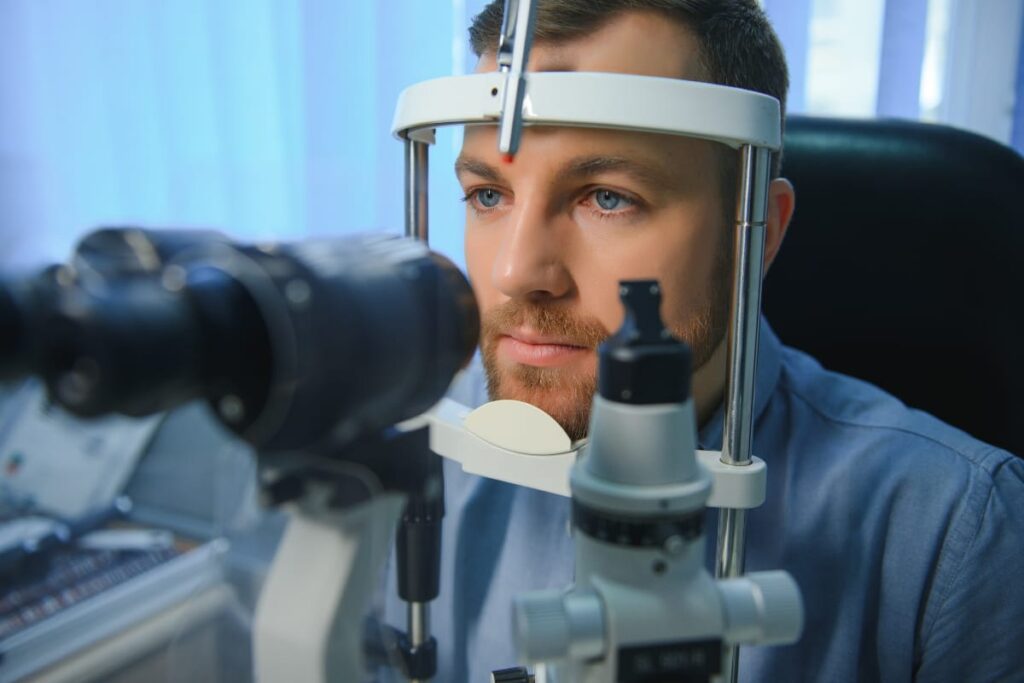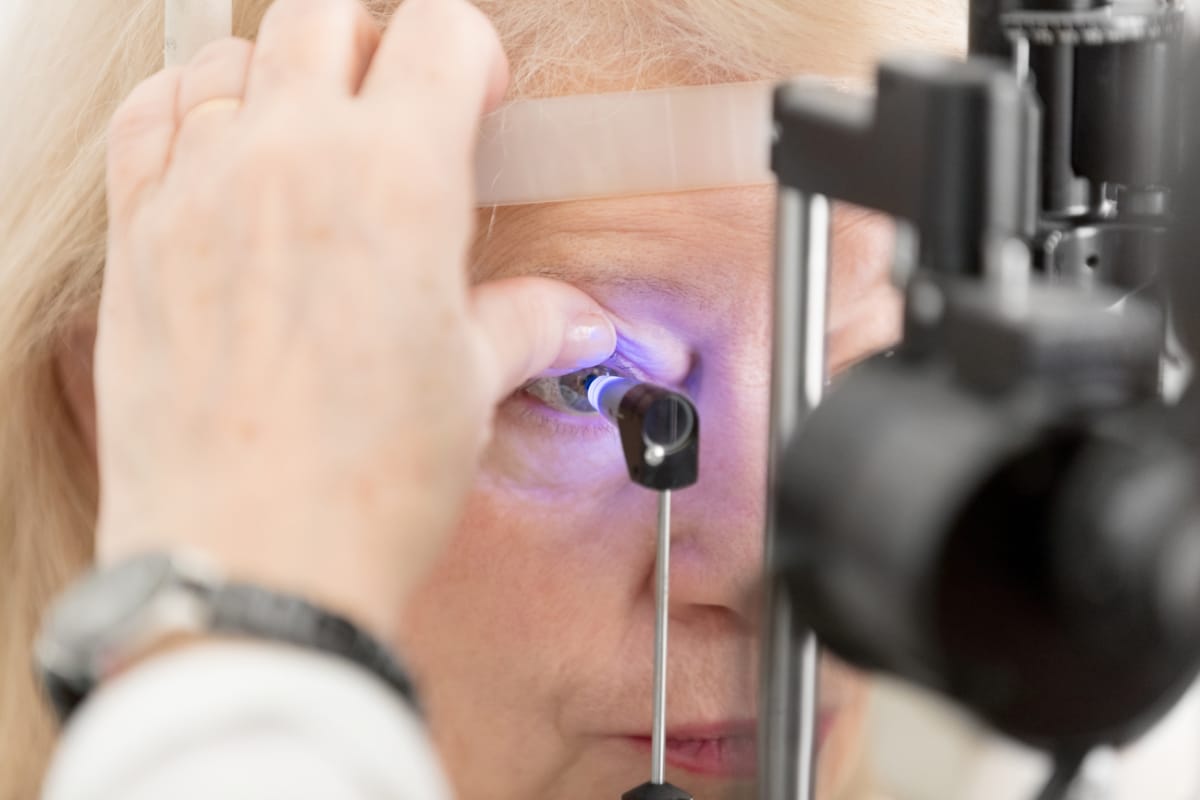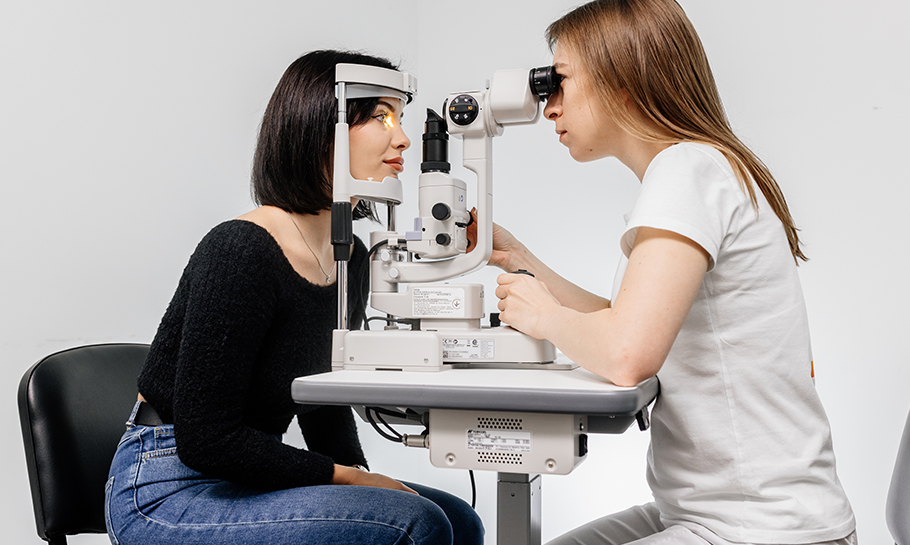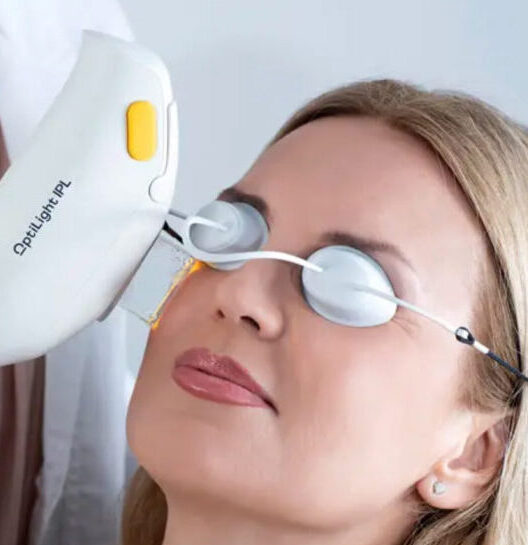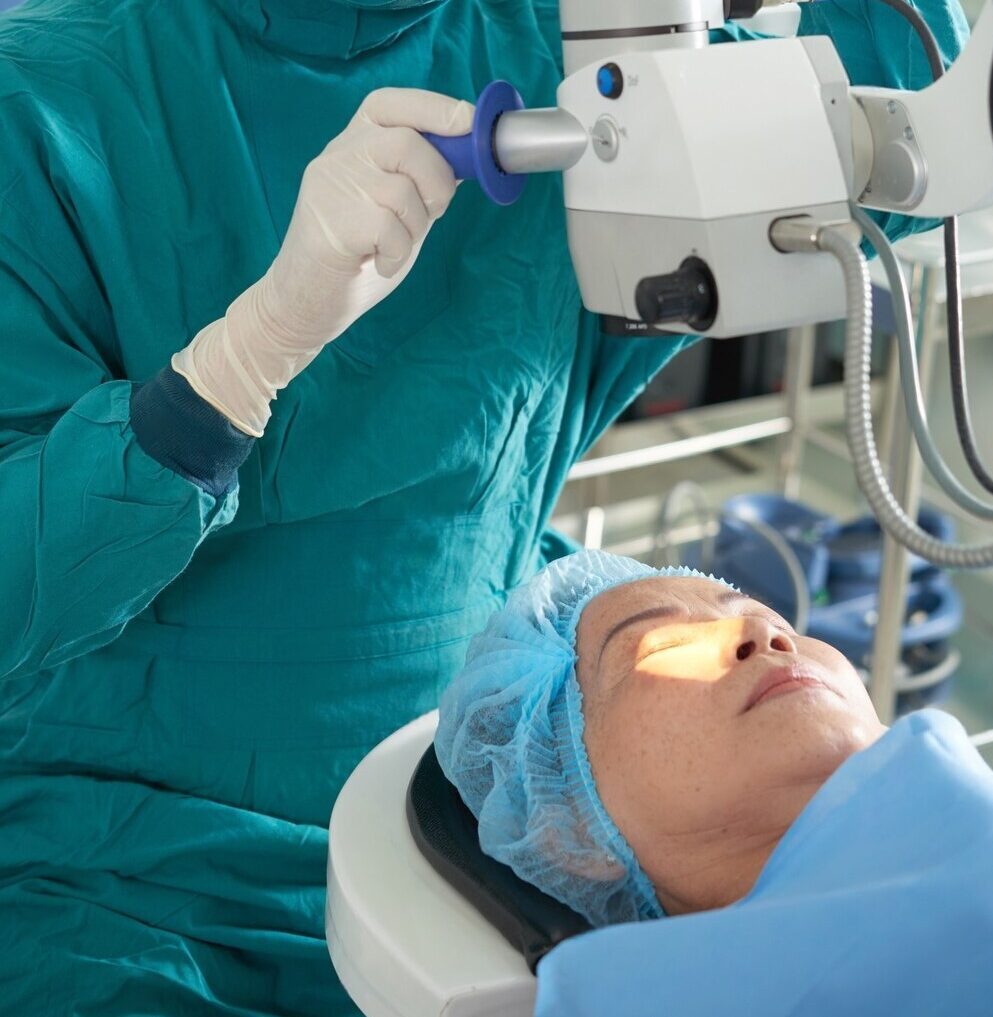Is Glaucoma Hereditary? Symptoms, Causes, Prevention & Treatments in 2025 Glaucoma is often described as the “silent thief of sight” because it progresses slowly and without noticeable warning signs in its early stages. Worldwide, it is estimated that over 80 million people are living with glaucoma, and this number is expected to rise sharply in …
Is Glaucoma Hereditary? Symptoms, Causes, Prevention & Treatments in 2025
Glaucoma is often described as the “silent thief of sight” because it progresses slowly and without noticeable warning signs in its early stages. Worldwide, it is estimated that over 80 million people are living with glaucoma, and this number is expected to rise sharply in the coming decades due to aging populations. What makes glaucoma particularly alarming is that once vision is lost, it cannot be restored.
One of the most important questions patients ask their doctors is: “Is glaucoma hereditary?” Understanding whether genetics play a role in this eye disease can empower individuals and families to take proactive steps toward protecting their vision.
What Is Glaucoma?
Glaucoma refers to a group of eye diseases that lead to progressive damage of the optic nerve. The optic nerve is responsible for transmitting visual information from the eye to the brain. When it becomes damaged, blind spots begin to form in your vision.
Why Does This Happen?
Most cases are linked to high intraocular pressure (IOP). Your eyes constantly produce fluid (aqueous humor), which must drain through tiny channels. If this fluid does not drain efficiently, it increases pressure inside the eye, slowly damaging the optic nerve.
But here’s the tricky part: some people develop glaucoma even with normal eye pressure—suggesting that genetics, blood flow, and nerve sensitivity are also key factors.
Main Types of Glaucoma
1. Primary Open-Angle Glaucoma (POAG)
- The most common type.
- Develops slowly and painlessly.
- Heavily influenced by family history and genetics.
2. Angle-Closure Glaucoma
- Caused by a sudden blockage of fluid drainage.
- Symptoms appear rapidly (severe pain, headache, nausea).
- A true medical emergency.
3. Normal-Tension Glaucoma (NTG)
- Occurs even with “normal” eye pressure.
- Often linked to poor circulation or vascular problems.
4. Congenital Glaucoma
- A rare but serious form seen in infants and children.
- Usually caused by genetic mutations and developmental abnormalities.
What Causes Glaucoma?
Glaucoma has multiple causes and risk factors. While elevated intraocular pressure remains the biggest contributor, doctors now recognize that glaucoma is more complex than just “high pressure in the eye.”
Key Risk Factors
- Genetics: Strong hereditary links (we’ll explore below).
- Age: Risk increases after 40; dramatically higher after 60.
- Ethnicity: African and Hispanic populations face higher rates of POAG; Asian populations are more prone to angle-closure glaucoma.
- Medical Conditions: Diabetes, hypertension, and cardiovascular issues raise risk.
- Eye Injuries: Past trauma or surgery can trigger glaucoma later.
- Corticosteroid Use: Long-term use of steroid eye drops or medications increases risk.
- Lifestyle Factors: Sedentary habits, smoking, and poor diet may worsen progression.
Is Glaucoma Hereditary?
Now to the key question: Is glaucoma hereditary?
Yes—genetics plays a major role in determining whether you’re likely to develop glaucoma. Research shows that people with a family history of glaucoma are 4 to 9 times more likely to develop it than those without.
- Primary Open-Angle Glaucoma (POAG): Multiple gene mutations are associated with POAG. If one parent has glaucoma, children have a significantly higher lifetime risk.
- Congenital Glaucoma: Almost always hereditary, linked to specific gene mutations that affect eye development.
- Normal-Tension Glaucoma: Inherited vascular and nerve sensitivity patterns play a role.
Key Genetic Discoveries
Advances in genetic research in 2025 have identified several genes (like MYOC, OPTN, and CYP1B1) that increase glaucoma risk. These discoveries are paving the way for genetic testing and personalized treatments.
👉 Takeaway: If glaucoma runs in your family, you should start eye exams earlier, ideally in your 20s or 30s, long before symptoms appear.
What Are the Symptoms of Glaucoma?
Glaucoma is insidious because most forms, especially POAG, show no symptoms until vision loss has already occurred. However, being aware of warning signs can help you seek medical help early.
Common Symptoms of Glaucoma
- Gradual loss of peripheral vision (side vision)
- Blurred or tunnel vision
- Seeing halos around lights
- Eye pain or pressure (more common in angle-closure glaucoma)
- Headaches, nausea, or vomiting (acute angle-closure emergency)
Because symptoms develop late, regular eye screenings are the best way to catch glaucoma before it causes irreversible damage.
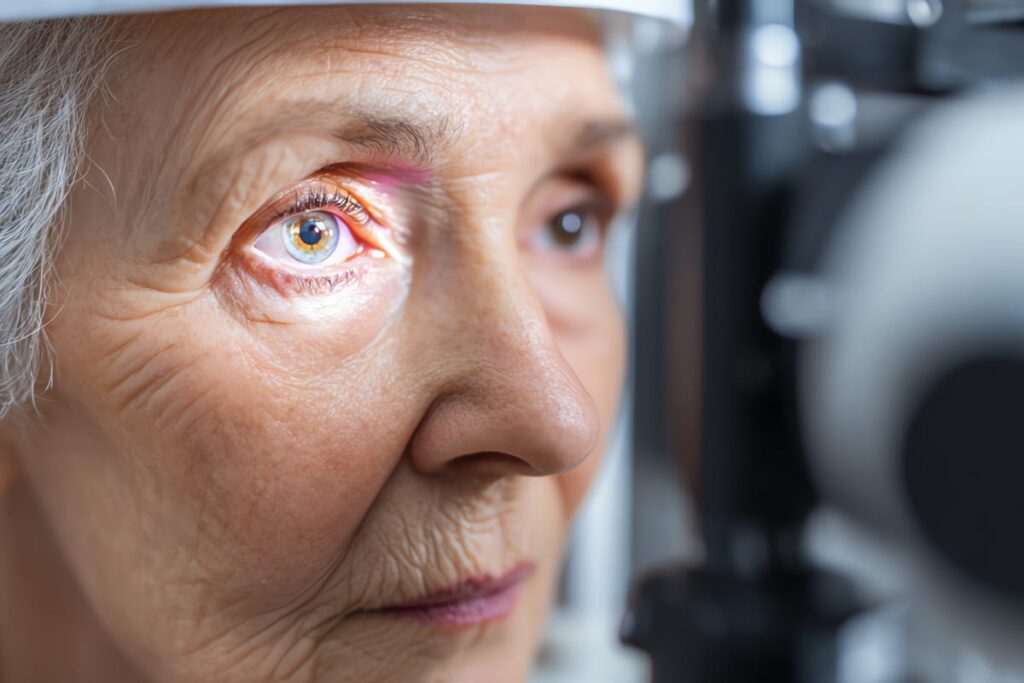
Can Glaucoma Be Cured?
One of the most frequently asked questions is: “Can glaucoma be cured?”
The short answer is no. Glaucoma is not curable, and vision lost to optic nerve damage cannot be restored.
But here’s the hopeful part: glaucoma is very manageable with modern treatments. By lowering intraocular pressure and protecting the optic nerve, doctors can halt or slow progression—helping patients maintain good vision for life.
Glaucoma Treatments in 2025
Thanks to medical advances, treatment options today are far more effective than they were a decade ago.
Current Treatment Options
1. Prescription Eye Drops
- First-line treatment for most patients.
- Reduce fluid production or improve drainage.
2. Oral Medications
- Used when eye drops aren’t enough.
- May have side effects, so usually temporary.
3. Laser Therapy
- Selective Laser Trabeculoplasty (SLT): Improves drainage in open-angle glaucoma.
- Quick, minimally invasive, and increasingly a first-line treatment.
4. Surgical Options
- Trabeculectomy: Creates new drainage pathways.
- Drainage implants: Tiny devices that help fluid escape.
- Reserved for advanced cases.
Future Treatments on the Horizon
- Gene Therapy: Correcting mutations linked to hereditary glaucoma.
- Neuroprotective Drugs: Medications that protect the optic nerve directly.
- Stem Cell Therapy: Experimental but promising for nerve regeneration.
- AI Screening Tools: Detecting glaucoma years before symptoms develop.
How to Prevent Glaucoma
While you cannot completely prevent glaucoma—especially if it’s hereditary—you can take steps to lower your risk and protect your eyes.
Prevention & Lifestyle Tips
1. Schedule Regular Eye Exams
- Over 40? Get screened every 1–2 years.
- Strong family history? Start in your 20s.
2. Know Your Family History
- Share it with your eye doctor—it changes your risk profile.
3. Maintain a Healthy Lifestyle
- Exercise regularly (walking, yoga, swimming).
- Eat foods rich in antioxidants, omega-3s, and leafy greens.
- Stay hydrated.
4. Protect Your Eyes
- Wear sunglasses to reduce UV damage.
- Use protective eyewear during sports or risky activities.
5. Manage Medical Conditions
- Control diabetes, blood pressure, and cholesterol.
6. Avoid Smoking & Excessive Alcohol
- Both can worsen optic nerve health.
7. Follow Treatment Plans Religiously
- If diagnosed, never skip eye drops or miss check-ups.
Living With Glaucoma in 2025
A diagnosis of glaucoma doesn’t mean blindness is guaranteed. With today’s advanced treatments, most patients maintain good vision throughout their lives.
- Stay consistent with check-ups and treatment.
- Adapt your lifestyle to support eye health.
- Embrace new technology: Telehealth visits, AI eye scans, and better medications make management easier than ever.
Final Thoughts
So, is glaucoma hereditary? Yes—genetics strongly influence your risk. If you have a family history of glaucoma, you must take proactive steps like early screenings and lifestyle changes to protect your vision.
While glaucoma cannot be cured, modern medicine in 2025 offers effective treatments—eye drops, laser therapy, surgery, and even emerging gene therapies—to help patients live full lives with healthy eyesight.
By understanding what glaucoma is, what causes glaucoma, whether it can be cured, and how to prevent glaucoma, you are already ahead in the fight against the silent thief of sight.
At Clearlee Perfect Aesthetics, we understand how frustrating dry eyes can be. That’s why we offer advanced treatments like IPL therapy for dry eye relief. By targeting the root causes—such as inflammation and poor tear gland function—our safe and effective approach restores comfort, reduces irritation, and helps you enjoy clearer, healthier eyes.
